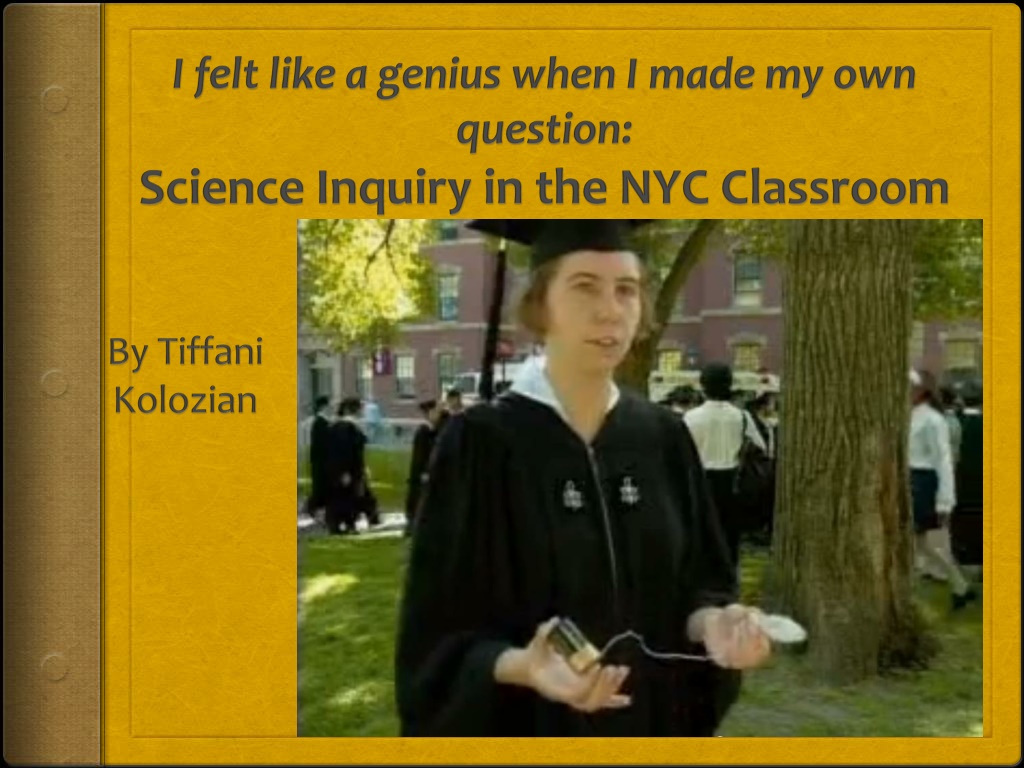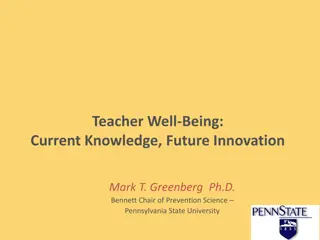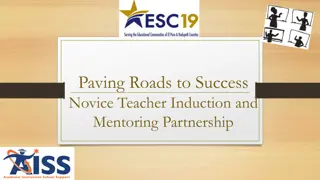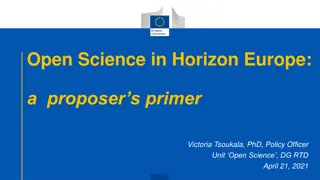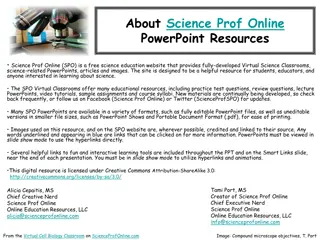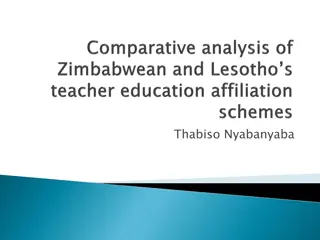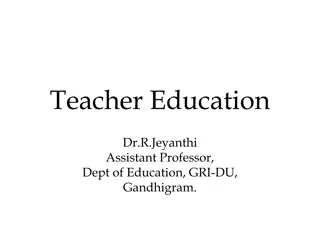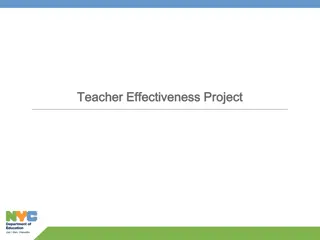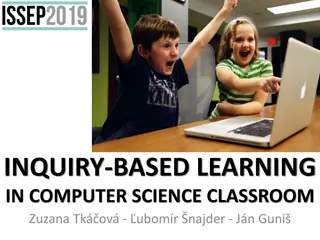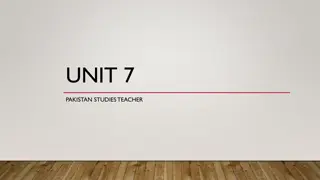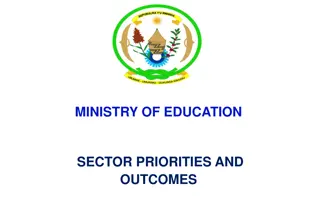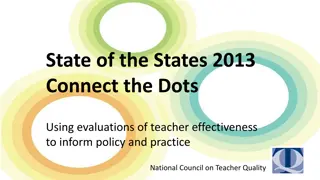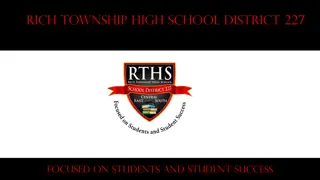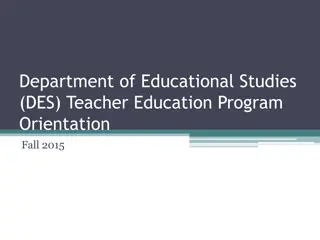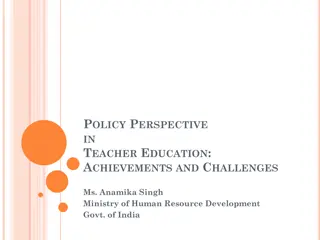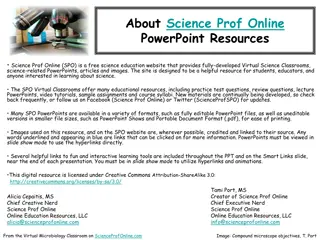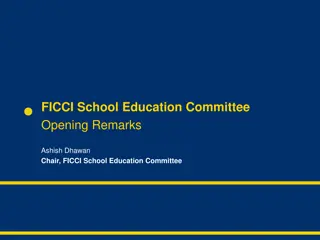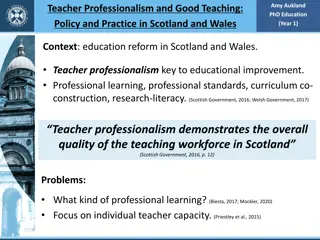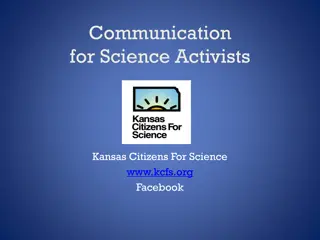Enhancing Science Education Practices and Teacher Understanding
A framework for K-12 Science and Engineering Practices emphasizes inquiry-based learning, problem-solving, and critical thinking skills. Addressing issues like high-stakes testing, teacher expectations, and the need for authentic investigations, it explores alternative assessment methods, dispels knowledge-dispensing teaching approaches, and advocates for setting higher standards in education. The content highlights challenges in education and offers solutions to improve student engagement and learning outcomes.
Download Presentation

Please find below an Image/Link to download the presentation.
The content on the website is provided AS IS for your information and personal use only. It may not be sold, licensed, or shared on other websites without obtaining consent from the author. Download presentation by click this link. If you encounter any issues during the download, it is possible that the publisher has removed the file from their server.
E N D
Presentation Transcript
A Framework for K-12 Science and Engineering Practices Science Education: 1. Asking Questions and Defining Problems 2. Developing and Using Models 3. Planning and Carrying Out Investigations 4. Analyzing and Interpreting Data 5. Using Mathematics and Computational Thinking 6. Constructing Explanations and Designing Solutions 7. Engaging in Argument from Evidence 8. Obtaining, Evaluation, and Communicating Information Practices, Crosscutting Concepts, and Core Ideas
High Stakes Testing Science standardized testing prevents students from learning material thoroughly and instead encourages test taking skills and memorization. Out of sixty-five students I surveyed about their goals in taking regents physics, forty-five responded with goals strictly about grades. Regents Physics Reference Table Page 4
Reconstructing High Stakes Testing Balance content and inquiry Team Learning Other options for assessment: testing only certain students each year, stealth assessments, portfolios
Teacher and Textbook: Dispensers of Knowledge How am I supposed to do it if you don t tell me? Hey Phil (across the room), go build a rocket but I m not going to tell you how (Steinberg 61). Please open up to page 46. Read and answer the questions. Quietly!
Teacher Expectations There are also noticeable trends between a student s first language, ethnicity, and migration status and their success in school. Predisposition toward creating less challenging classrooms Classroom management in denser classrooms creates stricter classrooms
Setting a Higher Bar for our Students Extended authentic investigations Access to authentic materials Collaborative work Learning technologies Local examples of the phenomena Interdisciplinary approaches Devonian Seas Program
Teacher Understanding of Inquiry 80% 70% 60% 50% 40% 30% 20% 10% 0% Proficient in what scientific inquiry is Proficient in using scientific inquiry Could correctly identify some elements of inquiry Study by Osisioma and Onyia; 2008
Improving Teacher Understanding of Inquiry Professional Development Bridge the gap between the science education research community and the community of teachers Continuous process Experience learning science through inquiry
Disconnection to Science One study found that African American third graders pictured scientists as A mature, intelligent, hardworking, White male, wearing glasses, formally dressed or in a lab coat, who also teaches as a part of work they do (Walls pg 15).
Connecting Students to Science Science that matters Culturally responsive teaching It made me feel smart. Cause. . .I made my own question up, and I never did that before. I felt like a genius when I made my own question. And then I did my own project. I did it by myself, just me and my partner. We were making our own thing. That made me feel like a genius, like a scientist. (Mallucci 1135) Student Discourse Simulations Virtual fieldwork
Resources in NYC Bridge Golf Foundation: https://bridgegolffoundation.org/blog/
